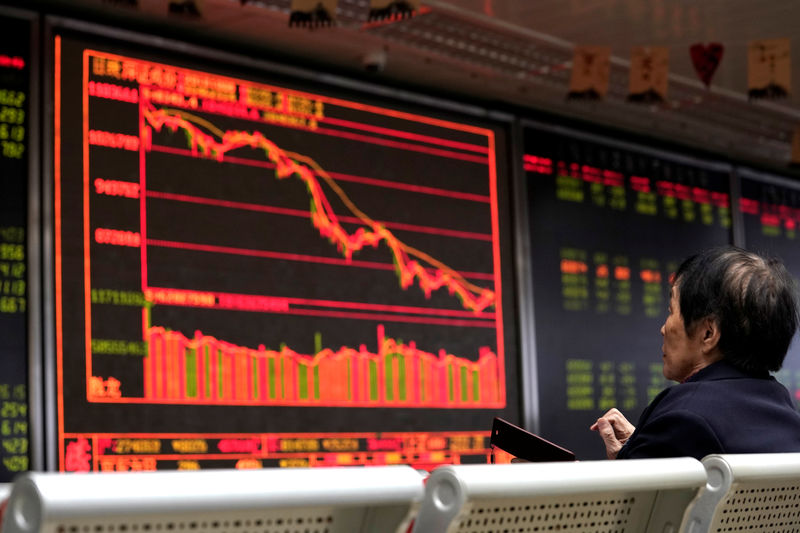By Luoyan Liu and John Ruwitch
SHANGHAI (Reuters) - Business owners and major shareholders are selling down their stakes in listed companies, producing a glut of shares in a market already under pressure from a slowing economy and the impact of the Sino-U.S. trade dispute.
The new supply comes as the three-year mandatory lock-in after an initial listing expires for scores of companies that had initial public offerings (IPO) in 2016 and 2017, freeing promoters to reduce their holdings.
Analysts estimate that these major shareholders would collectively sell a net of about 240 billion yuan ($34.10 billion) worth of A-shares in 2019.
That's just short of the 270 billion yuan foreign investors have spent so far this year purchasing shares via the Stock Connect scheme, the main channel for foreign investors participating in the country's 55 trillion yuan equity market.
(Graphic: Net northbound inflows into the A-share market amount to about 270 bln yuan, https://fingfx.thomsonreuters.com/gfx/buzzifr/15/1531/1531/Net%20northbound%20inflows%20into%20the%20A-share%20market%20via%20Stock%20Connect%20amount%20to%20about%20270%20billion%20yuan%20($38.4%20bln)%20so%20far%20this%20year.png)
The increase in selldowns is due to the huge number of IPOs three years ago, right after a four-month ban on new stock market listings China imposed in order to stem a chaotic slide during the market crash in 2015.
(Graphic: Major shareholders stake cuts curb rally of market bellwethers, https://fingfx.thomsonreuters.com/gfx/buzzifr/15/1529/1529/Major%20shareholders%20stake%20cuts%20curb%20rally%20of%20market%20bellwethers.png)
An average of 300 billion yuan worth of A-shares came onto the market each month since April as lock-up periods expired, up substantially from 170 billion yuan monthly average seen between August 2018 and March 2019, according to a report by research firm Caixin Insight CEBM.
The lifting of the three-year lock-up period is expected to bring the A-share market under increasing pressure as more stock hits the market.
The retreat by key shareholders comes as Beijing further opens its financial markets and international index providers lift weightings of China's onshore equity market, prompting foreign investors to boost their China investments.
Those divestments by investors and founding sponsors that have intimate knowledge of the listed businesses have already started to put a dent on stock prices of market bellwethers.
Shares in Shenzhen Goodix Technology (SS:603160), a supplier to both Chinese tech giant Huawei [HWT.UL] and Apple (O:AAPL), plummeted 9.9% on Monday as its second largest shareholder announced a share cut. The firm's second-largest shareholder, which had already lowered its holdings to 11.85% in November from 15.30% at end-2018, said last week it could unload as much as 5% more within 6 months.
Stake sales also appeared to have thwarted a robust rally in WuXi AppTec (SS:603259), a leading Chinese medical tech platform with heavy foreign holdings.
(Graphic: China's IPOs since 2011, https://fingfx.thomsonreuters.com/gfx/buzzifr/15/1543/1543/China's%20IPOs%20since%202011.png)
